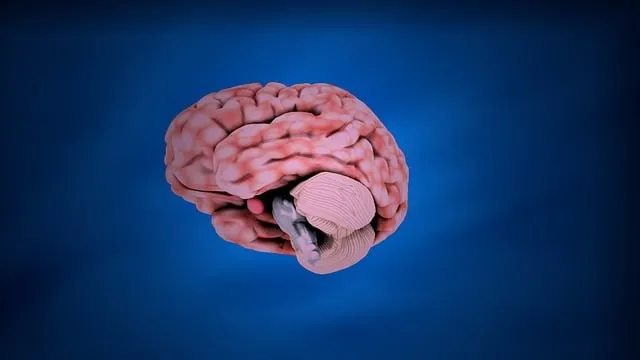The Centennial Kaiser Permanente mental health center by owner leads in transforming mental health awareness with tailored public campaigns addressing self-esteem and crisis intervention. They create culturally sensitive content, using technology to reach diverse communities through digital platforms and social media, focusing on stigma reduction and interactive tools for mental well-being management. Success is evaluated through sentiment analysis, community feedback, and shifts in public behavior and attitudes towards mental health awareness.
Public awareness campaigns play a pivotal role in fostering mental well-being, especially in diverse communities. This article explores strategies for enhancing mental health literacy through the lens of the Centennial Kaiser Permanente mental health center. We delve into understanding community needs, designing tailored content, and leveraging technology to reach diverse audiences effectively. By examining successful initiatives, we highlight measurable impacts, offering insights that can guide future public outreach efforts.
- Understanding Community Needs for Mental Health Awareness
- Designing Engaging Content for Target Audiences
- Leveraging Technology in Public Mental Health Outreach
- Measuring Success and Impact of Kaiser Permanente's Initiatives
Understanding Community Needs for Mental Health Awareness

In today’s fast-paced world, mental health awareness has become more crucial than ever. Organizations like the Centennial Kaiser Permanente mental health center by owner play a pivotal role in shaping public understanding and support for mental well-being. By analyzing community needs, these centers can develop targeted public awareness campaigns development that resonate with local populations. This involves recognizing cultural nuances, socioeconomic factors, and specific challenges unique to each region, ensuring messages are relevant and impactful.
For instance, initiatives focused on self-esteem improvement and crisis intervention guidance can make a significant difference in communities where mental health resources are scarce or stigmatized. Tailoring these campaigns to address local barriers can foster open dialogue, reduce suffering, and encourage individuals to seek help promptly. Through collaborative efforts, community engagement, and evidence-based strategies, centers like the Centennial Kaiser Permanente aim to revolutionize mental health discourse, ensuring no one feels left behind in their pursuit of well-being.
Designing Engaging Content for Target Audiences

Creating compelling content tailored to specific audiences is a cornerstone of successful public awareness campaigns. At the Centennial Kaiser Permanente mental health center by owner, we understand that engaging diverse communities requires unique approaches. For instance, when addressing general anxiety relief or burnout prevention strategies for healthcare providers, employing relatable narratives and vivid imagery can make complex topics more accessible and appealing.
Our Mental Wellness Journaling Exercise Guidance leverages this understanding, offering practical tips and personal stories to captivate various target audiences. By integrating these storytelling elements, we aim to foster a sense of connection and encourage participants to embrace mental wellness practices such as journaling. Through this approach, campaigns can effectively communicate essential messages like Anxiety Relief or Burnout Prevention Strategies for Healthcare Providers, ensuring they resonate with individuals seeking support and guidance.
Leveraging Technology in Public Mental Health Outreach

The integration of technology in public mental health outreach has been a game-changer, especially with centers like the Centennial Kaiser Permanente mental health center by owner, leading the way. Through innovative communication strategies, such as digital platforms and social media, they’ve expanded their reach to include a broader audience. This approach ensures that information about self-care practices and stress reduction methods can be easily accessed by those who might otherwise face barriers in traditional outreach methods.
By leveraging technology, mental health centers like Centennial Kaiser Permanente can provide engaging content tailored to diverse communities. Online resources offer interactive tools for managing mental well-being, breaking down stigma, and encouraging proactive self-care. This digital transformation not only increases accessibility but also fosters a sense of community and connection, crucial in addressing the growing demand for mental health services.
Measuring Success and Impact of Kaiser Permanente's Initiatives

Evaluating the success and impact of Kaiser Permanente’s public awareness campaigns is a multifaceted process that goes beyond simple metrics. The Centennial Kaiser Permanente mental health center, as an owner of such initiatives, employs a comprehensive approach to gauge effectiveness. This involves tracking changes in public discourse around mental health through social media sentiment analysis and community feedback surveys. By measuring the reach and engagement of their campaigns, they can assess how far their messages have traveled and who they’ve resonated with.
One notable area of focus is the reduction of mental illness stigma, a goal often reflected in programs like Social Skills Training. The center measures success not just through direct program participation but also by observing shifts in community behaviors and attitudes. This includes decreased avoidance or ostracization of individuals with mental health conditions and increased acceptance, as gauged by local support groups and online forums. Such qualitative assessments, combined with quantitative data, offer a holistic view of Kaiser Permanente’s initiatives’ impact on Mental Health Awareness.
Public awareness campaigns, as demonstrated by the initiatives at the Centennial Kaiser Permanente mental health center by its owner, play a pivotal role in fostering open conversations about mental well-being. By understanding community needs, designing engaging content tailored to diverse audiences, and leveraging technology, these campaigns can significantly enhance public knowledge and reduce stigma. Measuring success through impact assessment ensures continuous improvement and encourages further innovation in public mental health outreach.






